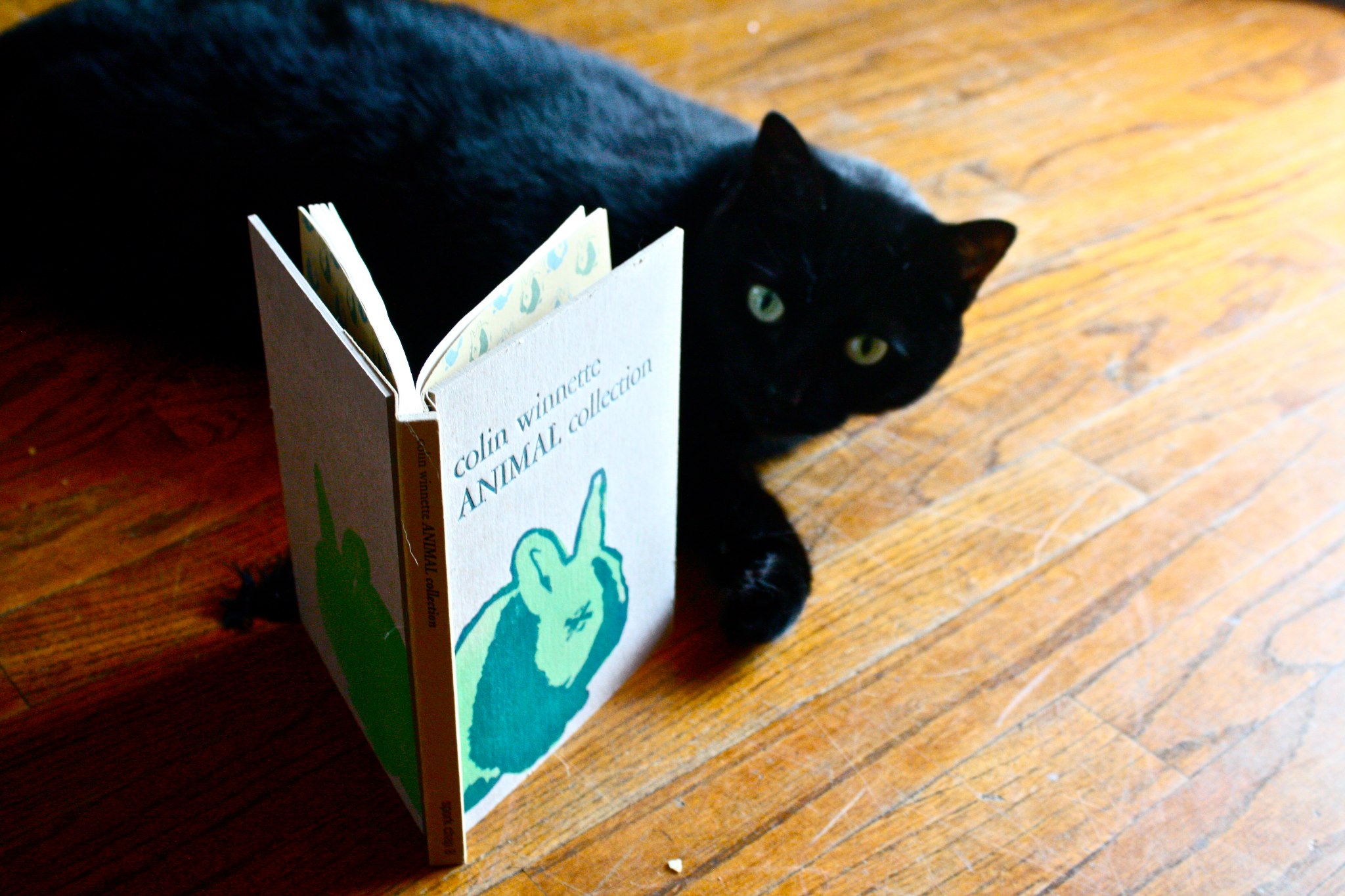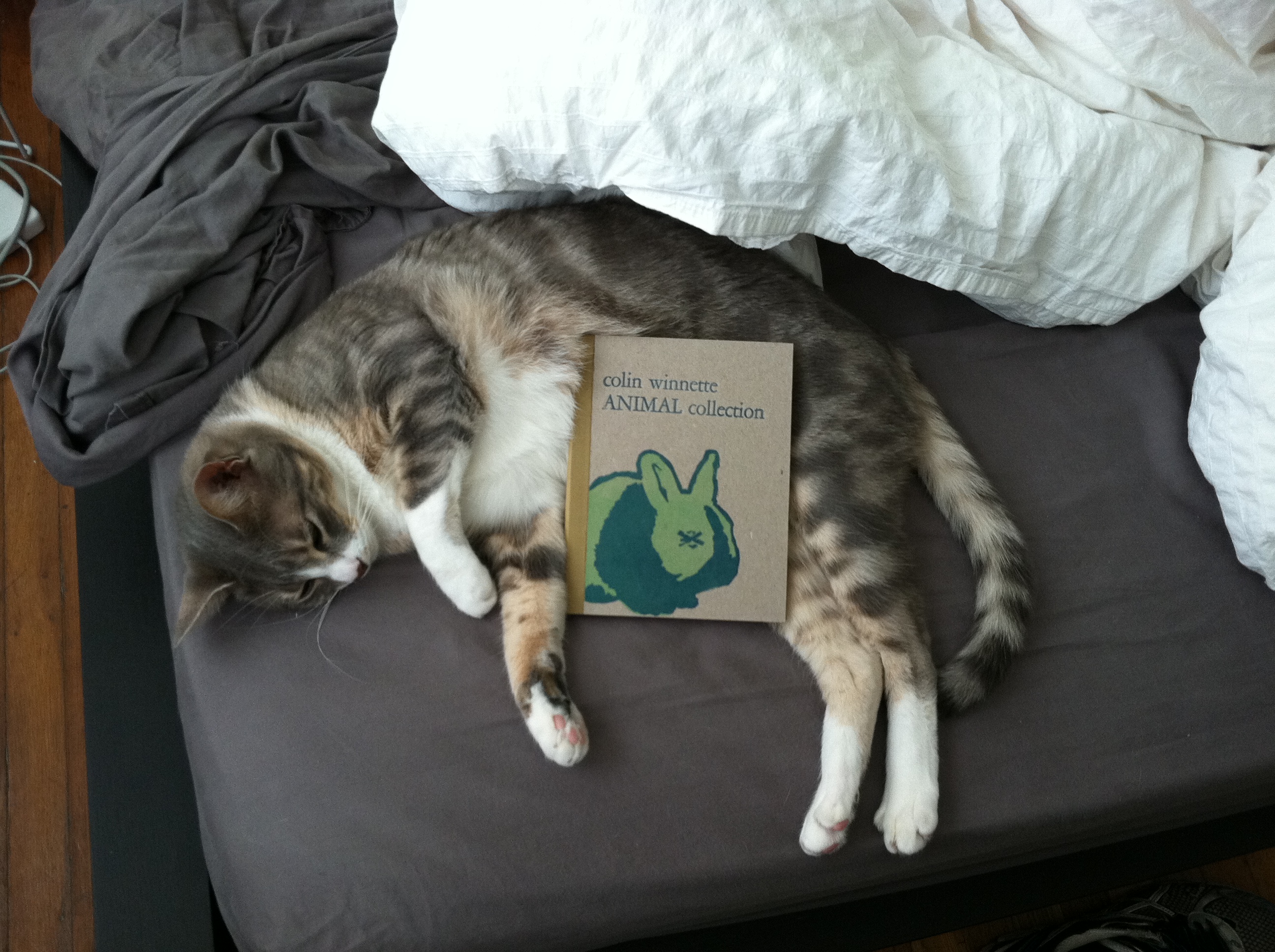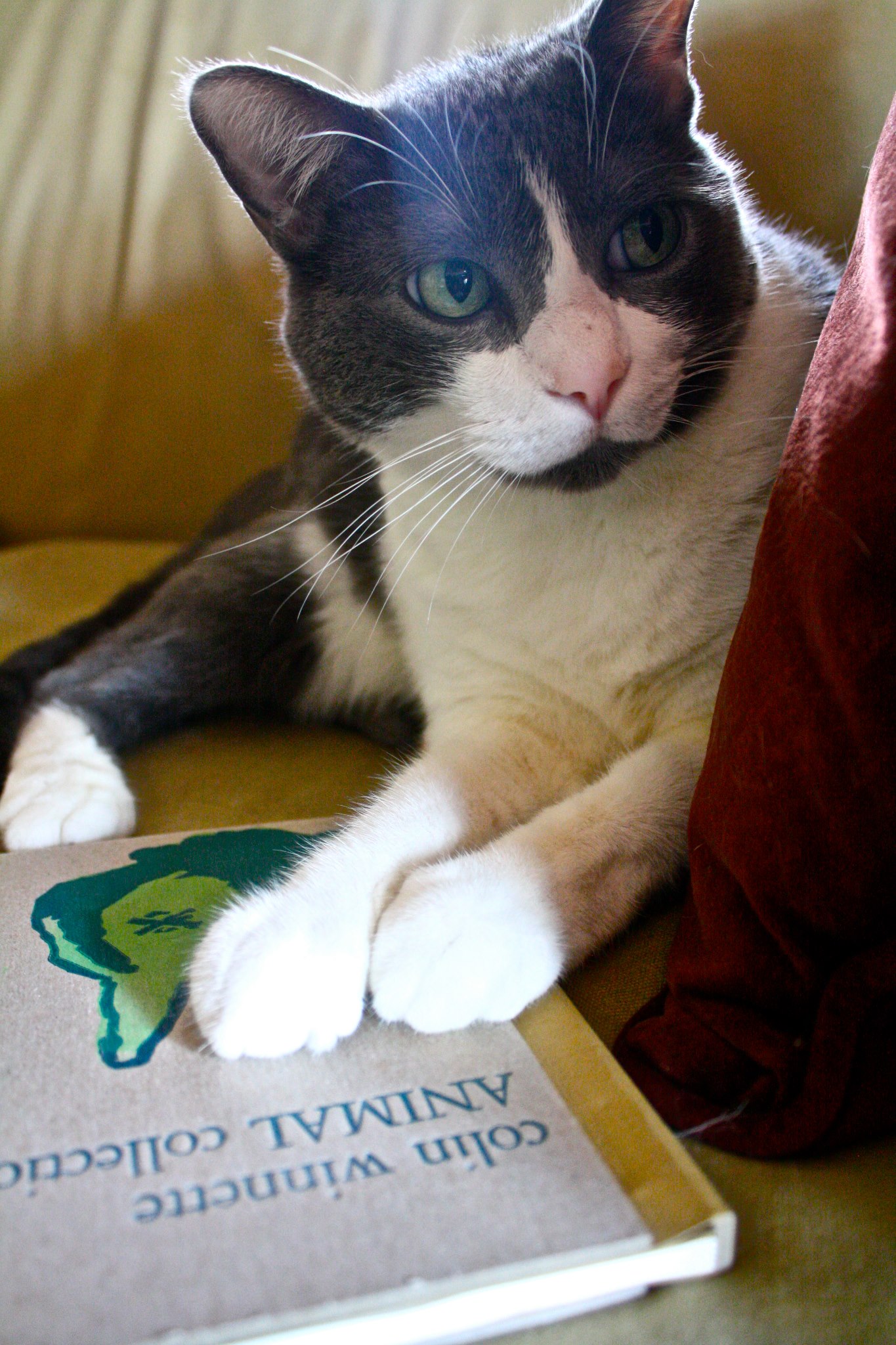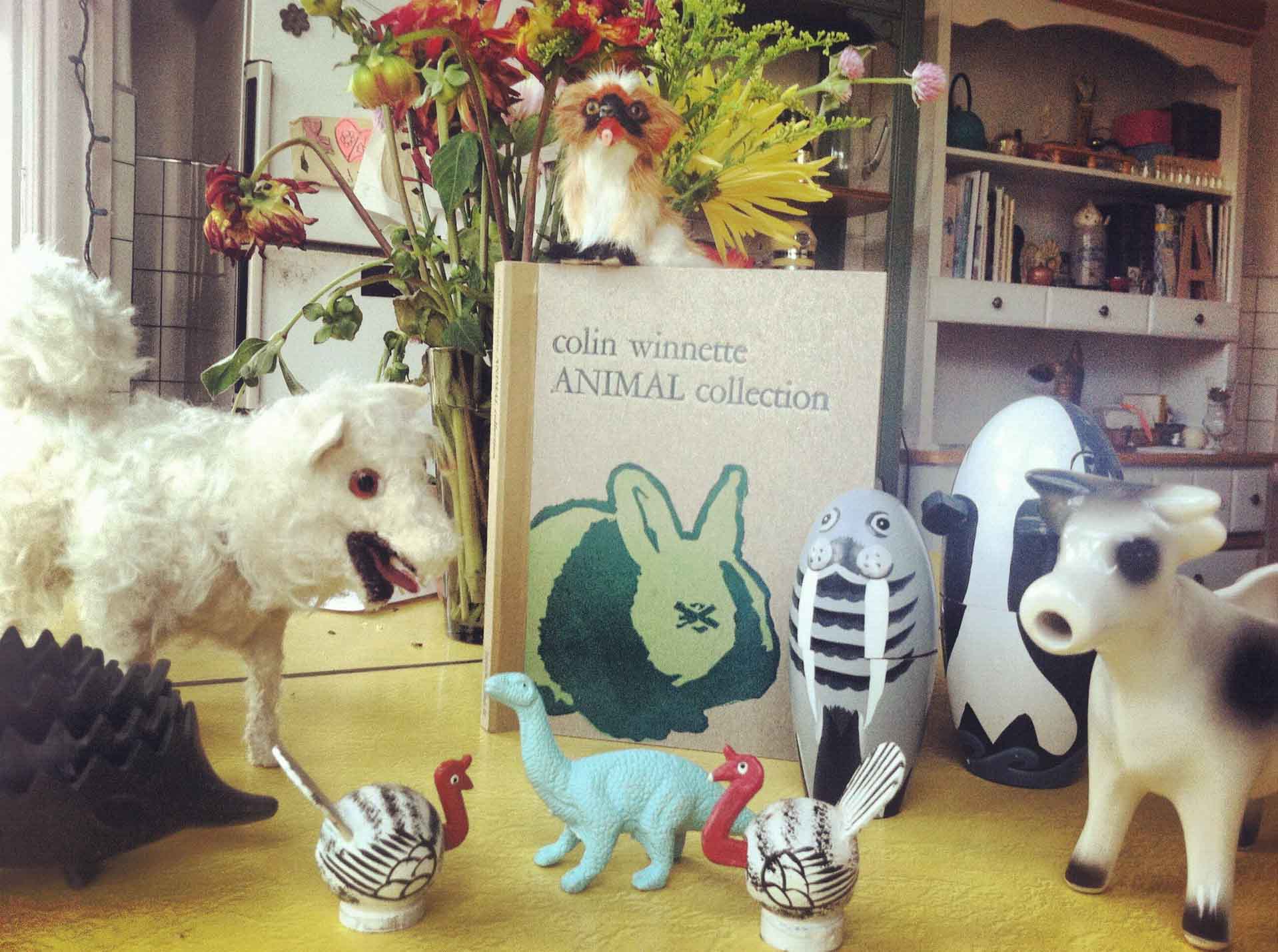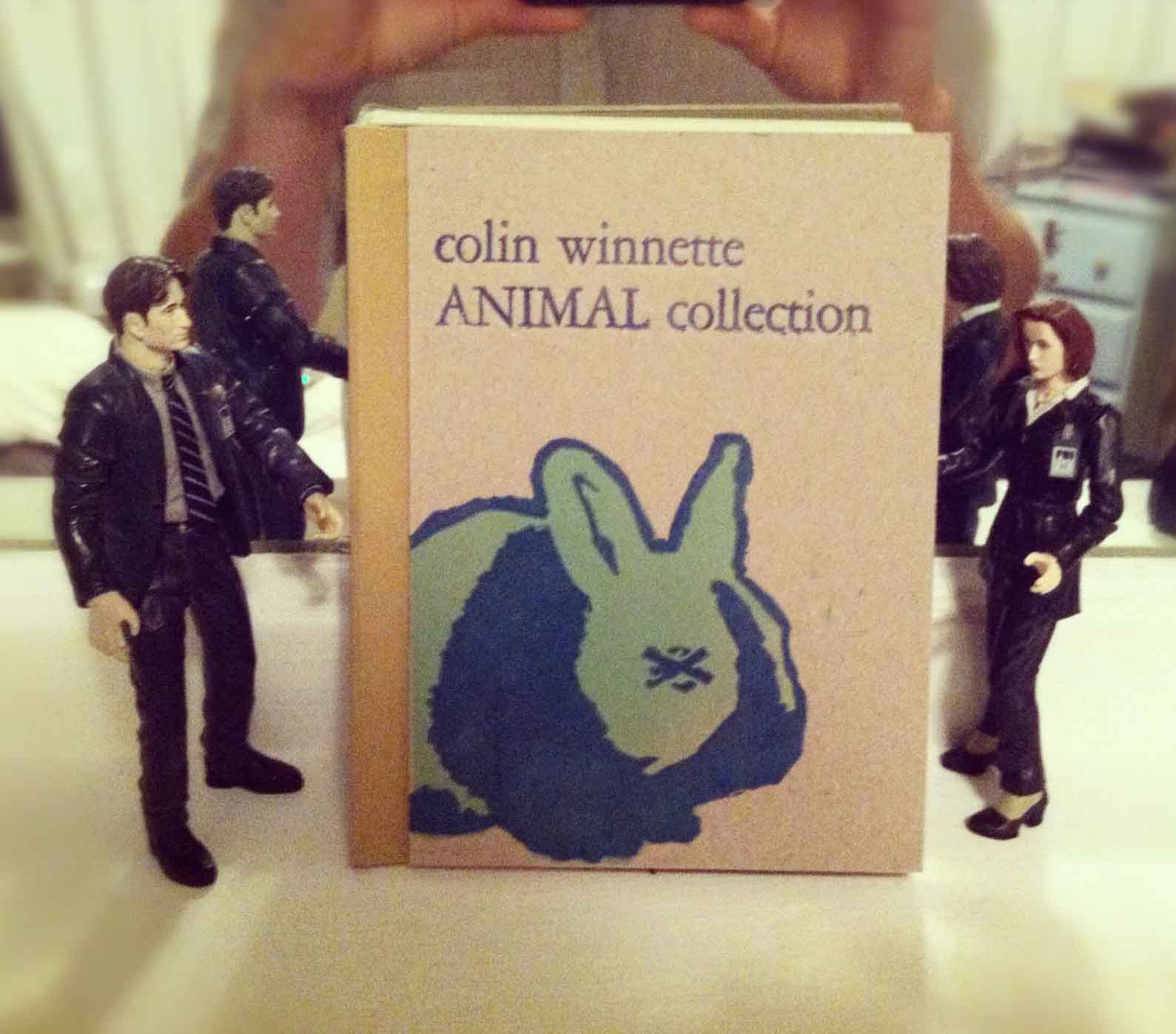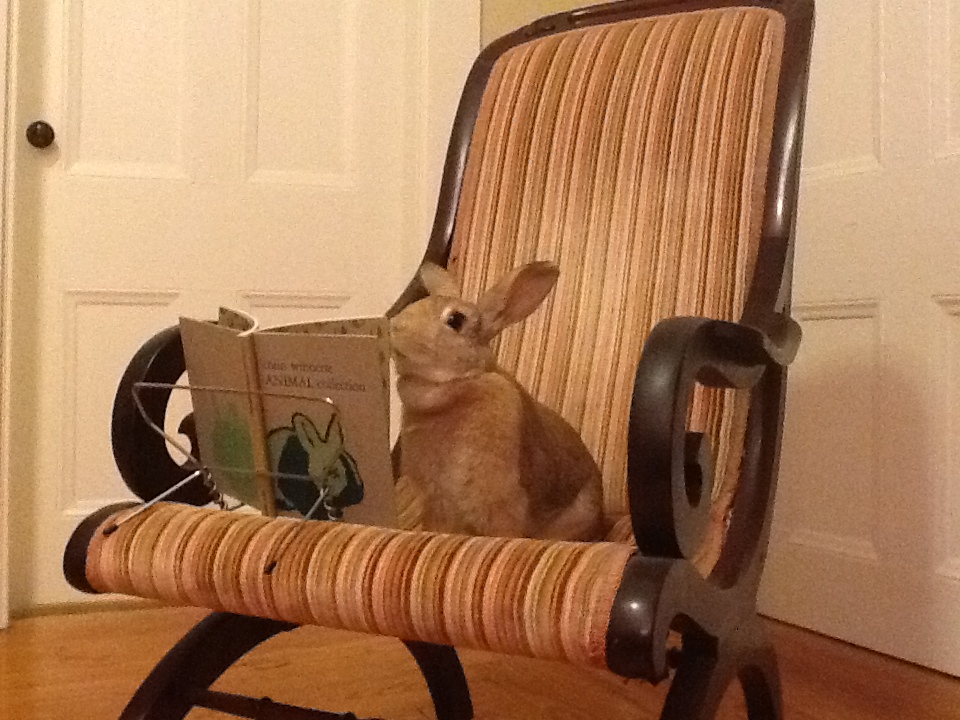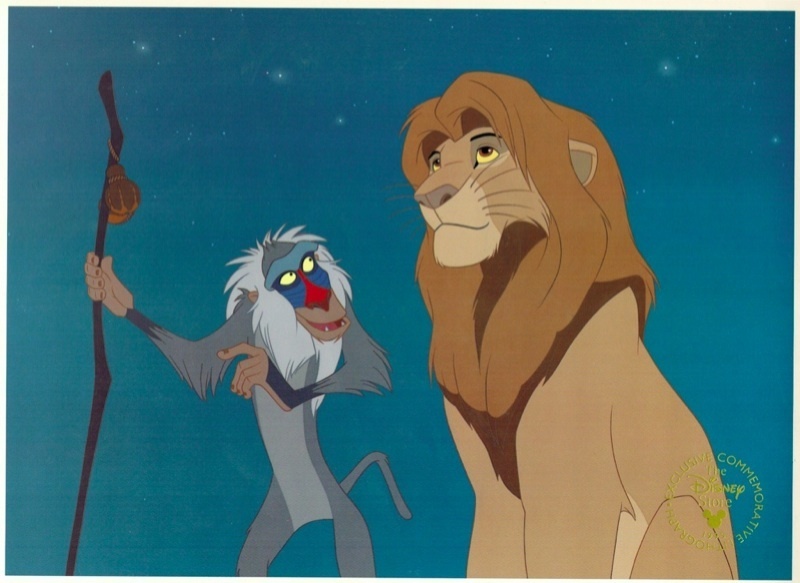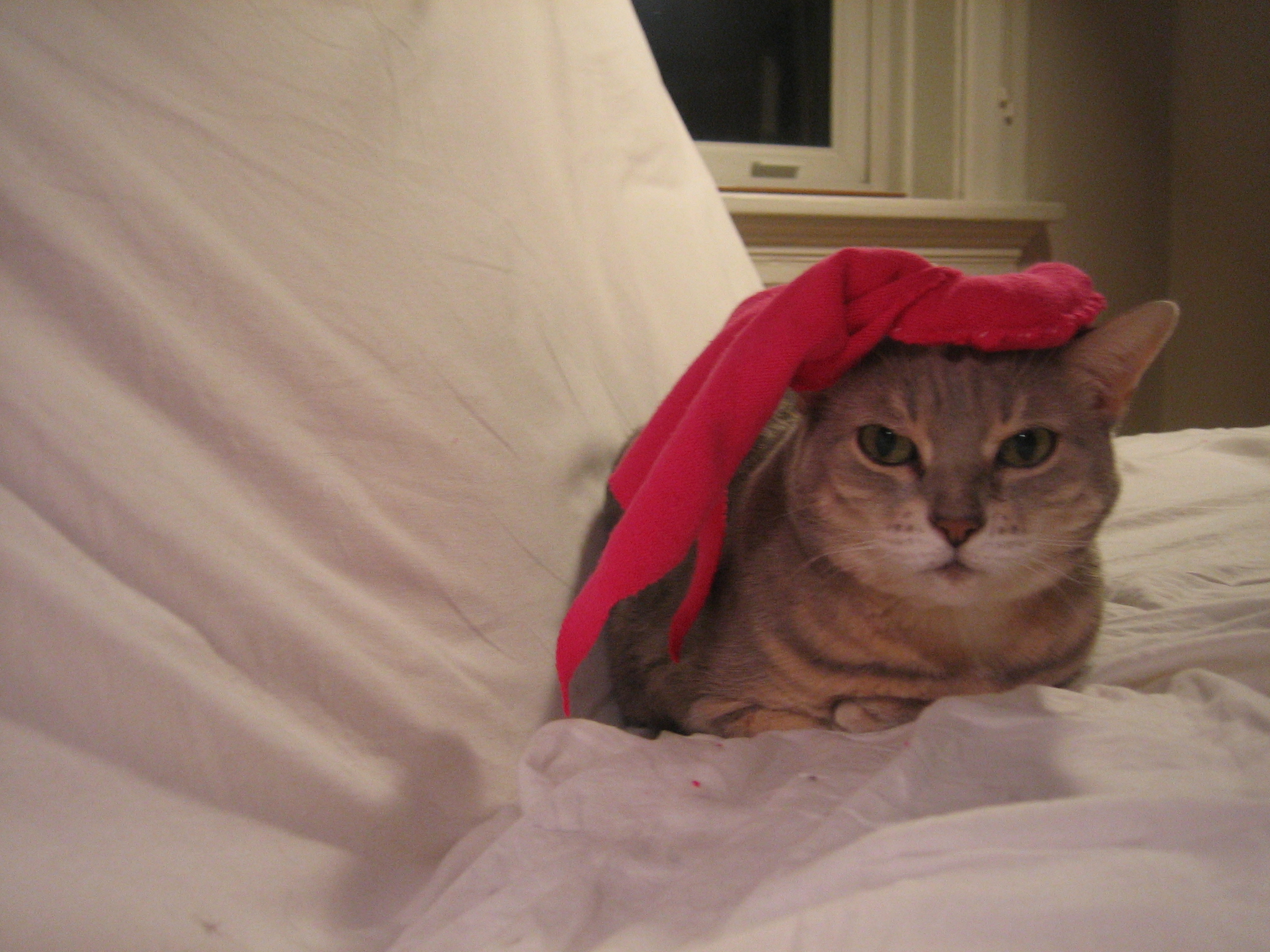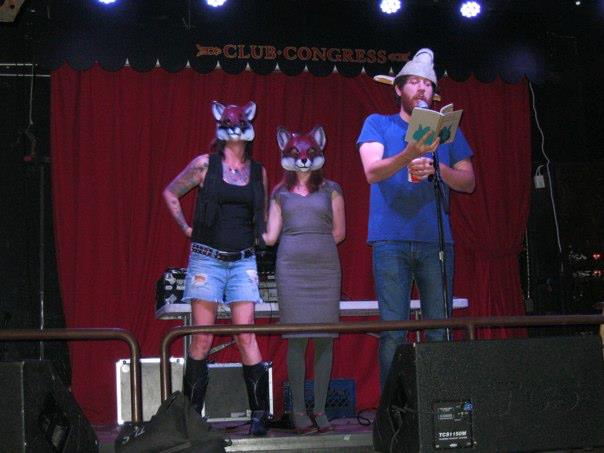Author Spotlight
An interview with Colin Winnette regarding his new short story collection concerning animals, “Animal Collection”
ADJ: Hi, Colin.
CW: Hi, Adam.
ADJ: Let’s talk about your new book, Animal Collection.
CW: OK, but I think Adam Robinson has already posted something. Does HG have a policy against there being two posts on the same topic?
ADJ: No, it’s OK so long as both guys are named Adam.
… But let’s you and I make small talk, instead. You moved to San Francisco recently. How’s that been working out?
CW: I went to Target today for bookshelves—
ADJ: They have Targets in San Francisco?
CW: They do! The San Franciscan Targets.
ADJ: Have you heard what James Howard Kunstler said about Target?
CW: No, what?
ADJ: I’m paraphrasing, but it was something like, “I can’t believe no one’s taken them up on the offer.”
CW: Ha ha! … Anyway, Target did not have the bookshelves we were looking for. So we bought a dish rack. Target won’t let you leave emptied-handed.
ADJ: I should move out there because I need a new dish rack myself.
CW: Well, let me tell you, we bought a dish rack and a drying mat. The combo will provide us a range of metal proppings and absorbent flats to address any and all dish drying needs. This was a good household purchase, in my mind. I washed the coffee cups immediately this morning, out of pure excitement.
ADJ: I, too, have such a mat. I need to replace it, though, as it’s gotten grungy.
CW: That was my concern! It seems like an item whose sole purpose is to sit and absorb water would inevitably start to fester and stink.
ADJ: Yes.
CW: The cardboard sleeve in which it came offered this assurance: “antimicrobial.” I’m skeptical, but optimistic.
ADJ: You still have to wash it regularly, or else it gets scummy, and then the scum corrodes it. And then the scum develops sentience and terrorizes the counter, the county, the country …
CW: I’m a sucker, and complicit in this tyranny.
ADJ: You know a great deal about animals, Mr. Winnette, but precious little about scum.
… Let’s discuss your new collection, Animal Collection, which is a collection of short stories about animals. Can you describe it exactly seventeen words?
CW: Someone said the book is an allegory for the way we use allegories. I don’t totally agree.
ADJ: Why not? (Now you may use as many words as you like.)
CW: My hope is that the stories resist allegorical readings. While the collection engages with allegory, fable, myth, anthropomorphism, etc., it aims to disrupt easy meaning-making. The collection isn’t about teaching particular lessons. It’s more about contradiction and mutation than a single fixed reading. Nothing in it will stay put.
ADJ: You’re saying that the pages will fall out?
CW: They certainly would have, had Spork’s Drew Burk not bound them with tremendous care and knowledgeable expertise.
ADJ: I see what you did there—another seventeen words. You’re a champ. But can you describe the book in … forty-nine words?
CW: An excerpt from an email I wrote last summer to my editor/fiancée: “Doing some big edits on the animal stories that require a certain amount of nervous energy (that book is just a big cluster of nerves and jokes wrapped really tightly around this sad, lonely, little dark space).”
ADJ: “Editor/fiancée,” I see. We’ll call that the Collection’s Hidden Subtext.
CW: You know me.
ADJ: I thought I did.
CW: I think you do.
… Now, before we move forward—some of these answers were written by me, some by you, and some were in between. For instance, which one of us wrote this line?
ADJ: We’ll take it to the grave.
CW: So how important is it that the reader even knows who wrote what? Or that we even collaborated in this fashion? Should I have kept my big trap shut?
ADJ: Your big animal trap? “Knowledge of animals wants to be free.” I think the end result of an interview matters most, so whenever I do one, I encourage both parties to write/revise all sections freely. Although I did sort of launch right into it, rewriting some of your answers; did that upset you?
CW: No, I loved it!
ADJ: Ah, but I wrote that answer for you. How did you really feel about it?
CW: No, I agree; I think it’s a great idea, and I loved it.
ADJ: Ah, yes, but I wrote that answer, too. How did you, the real Colin Winnette, really really feel about it?
CW: I really love it! The me that we’ve created is both clever and good-looking.
ADJ: It is based on the real-life Colin Winnette. Whom, when I first met him, was working out, skipping rope at the School of the Art Institute of Chicago.
CW: And reading aloud from Raymond Queneau’s 100,000,000,000,000 sonnets!
ADJ: Gee whiz, I forgot that part. I’m more into exercise than literature, you know.
CW: Exercise produces results. What has literature ever done?
ADJ: Aided us in the Fight Against Tyranny (FAT)?
CW: But for my abs?
ADJ: Skipping rope has done little for those. … Well, being cardio, skipping rope does help keep you trim. But it won’t give you a six-pack; for that, you have to do resistance training that targets the abdominal muscles.
CW: Let’s just talk about the collection.
ADJ: No, let’s talk about the collection and the Art Institute. How did your time as a student at SAIC impact the writing of this collection?
CW: Considerably. I was working across many disciplines at SAIC and I was working with some great readers/makers. Among other things, I think of the book as a series of formal experiments. The range of work I was making and studying at SAIC impacted the freedom I felt when putting this book together.
ADJ: That’s both wonderful and good, Colin, but you know I’m going to ask you to be more specific. Which disciplines, specifically, were you working across?
CW: I was working in performance and installation, also making objects from time to time. I made a number of videos, too. I was trying things out, seeing what stuck. I also wrote poetry, a novel, a couple novellas, many short stories, and a few lousy short plays.
ADJ: And tell me more about these formal experiments. Describe at least one of them in delicious formal detail.
CW: This is going to be an unsatisfying answer.
ADJ: I’ll be the judge of that; proceed.
CW: Basically, each animal provided a cluster of associations. The voice of each story is derived somehow from that cluster. The voice then becomes the limit of the story, more or less. So, when writing each piece, I was working within the limitations of these associations and, then, how the story was being told. It sounds vague when I say it, but it felt particular with each piece.
… Safer to say, I was working with various levels of constraint. Some were on a larger, more obvious scale (animals, the alphabet, one animal per letter, etc.), and others were more personal or intuitive. I imagined each story taking place within the cage of its own language/animal associations. What could happen and what couldn’t were decided early on by the voice of the story. I know I’m being terribly vague about this. I’d make a dreadful scientist.
ADJ: Yes, you would. But a literary critic?
CW: Even worse.
ADJ: Nonetheless, can you name another book that Animal Collection is most like?
CW: The stories have more in common with old Disney movies (Robin Hood, Lady and the Tramp, Sword in the Stone) than any book I can think of.
ADJ: Will you be selling souvenir cels?
CW: Yes.
ADJ: I own such a cel. From The Lion King.
CW: Hand it over.
ADJ: It’ll cost you.
CW: I have no money, not until I sell more books.
ADJ: Well then I won’t sell you my cel.
CW: It’s fine. I didn’t really want it anyway. [Pouts.]
ADJ: Don’t pout. I will show it to you. [Adam, who carries the souvenir cel on him at all times, produces the cel.]
CW: That’s a commemorative lithograph, Adam, not a cel.
ADJ [crestfallen]: … Oh.
CW: Still, it is something special. Everyone should see this.
ADJ: That’s just one of the many tragedies of my life. Now, since you can’t say which book Animal Collection is most like, can you say which book it is least like?
CW: I tend to try to write myself out of whatever I’m reading, or whatever has most recently stuck with me. So I guess it’s most unlike whatever books I’ve read this year. For example, Ben Marcus’s Flame Alphabet. Animal Collection is nothing like The Flame Alphabet.
ADJ: I, too, like to conceive of projects as anti-projects. By defining what I won’t do, I often end up writing things I otherwise wouldn’t write. Was that the case here?
CW: Very much so. Each story became a cage I had to get out of.
ADJ: How very John Cage. Speaking of whom, have you ever owned a pet?
CW: Many!
ADJ: Can you name them all for our edification?
CW: Oh, lord. I don’t think so. Here’s a guess, as well as a glimpse into the darker reaches of my childhood. Dogs: Spot, Winnie, Daisy, Luke, Adora, Logan, Charlie. Cats: Alabama, Tommy Tripod, Stinky, Moses, and about three others whose names I’ve forgotten. Ducks: Til. Mice: Penelope. Hamsters: I’ve forgotten. Nameless pets now listed by kind: rats, snakes, frogs, anole lizards, gecko (named Gecko, maybe?), boa constrictor, and I’m forgetting something … Maybe a gerbil?
ADJ: Maybe a gorilla?
CW: Maybe a gorilla.
ADJ: Were any of the stories in this collection inspired by that gorilla, whose name was Cadell Tamsen? Or by any other members of that vast array of pets?
CW: When writing “Vermin,” I thought of the rats my father kept in my bedroom (as food for his boa constrictor). The rats kept breeding, leaving us with more rats than the snake would eat, so we kept the remainder as pets. I’ve seen a lot of pets die, so that probably influenced the stories, which are all a little sad.
… How about you? Did you have pets? What do you make of pets in general?
ADJ: It’s strange you should ask me that on this particular day (23 November 2012), which is the 2nd anniversary of the death of the only pet I’ve ever owned, my beloved cat, Miss Lucy. I brought her cremains with me to my parents’ house (for the Thanksgiving holiday), and earlier today I went for a walk in the woods behind their house, where I scattered her ashes.
CW: Oh my god. I had no idea.
ADJ: Her ghostly little paw must have guided your hand.
… Two years is a long time to wait before scattering her ashes, I know. When I had Miss Lucy, I lived with a woman, who then went overseas, and she and I were waiting for the chance to reunite to make a proper farewell for our pet. But that never happened, and now the woman is preparing to get married in New York City. I’m happy for her, but also I thought—enough! Time to get Miss Lucy’s ashes out into the world! Then I realized that I’d be in Scranton, Pennsylvania on the 23rd, visiting my parents for Thanksgiving. And, suddenly, scattering the ashes there seemed appropriate, even though Miss Lucy had never been to Scranton. I thought the change of scenery would free her? Or that it would free me.
CW: Did anyone go with you, or were you alone?
ADJ: I went alone. I walked through the woods, until I came to a crossroads. That struck me as right. I figured Miss Lucy could choose which direction she wanted to take. That, or the action would summon the devil, teach me to play the guitar, etc.
CW: Did you feel free afterward?
ADJ: I felt pretty much the same, honestly. She died two years ago and I don’t think she’s still alive in any sense, except in my memories. But I’m happy to no longer have her ashes in my bedroom.
CW: Have you mentioned Miss Lucy in your writing?
ADJ: I think she shows up in Giant Slugs? But cats appear often in my writing.
… How about you? Judging by the above photographs, cats (and other animals) certainly seem to like your writing. But do you often write about animals? Or is Animal Collection more a one-off?
CW: Not so much in my fiction. But animals do make appearances in a lot of my poetry. In fact, I just finished a book-length poem called The Animals.
ADJ: Have you read Graeme Base’s book Animalia?
CW: Yes! I’d forgotten it, though, until now. We had a copy in the house when I was a kid, and I remembering flipping through it repeatedly and staring at it, discovering all these little details that seemed surprising and hidden. They may not have actually been either of those things, but that’s how I remember them.
ADJ: I was a big fan of Graeme Base when I was a teen, both him and Nick Bantock. I admired writers who combined visual art with writing.
… Incidentally, have you seen Cecelia Condit’s short film Possibly in Michigan?
CW: No, and I’m at work right now, and so shouldn’t watch the event that is right now happening. (I work at a book store in San Francisco, and Peter Orner is currently giving a reading).
ADJ: I ask because of all those photos I saw of people at one of your readings, wearing animal masks.
CW: Those photos were taken throughout the last couple months, starting in early September. The masks appeared twice, at the release party in Tucson, and one night when Spork was recording audio from the book for their podcast (which you can listen to here). The cast of characters includes Richard Siken as a Donkey, Amelia Gray as a Fox, Joel Smith as a Zebra, and Andrew Shuta as … a lamb? Women in fox masks were wandering around the venue the night of the book release, reading eerily on benches and staring off into the distance, and eventually they wandered up on stage while I was reading. I knew they were behind me, but I didn’t know what they were doing. Foxes are mysterious.
… There were also frogs and lions and you name it. And Lydia Millet was there, without a mask. Although it might have been someone else in a Lydia Millet mask. It was a grand ole time!
ADJ: And what about the other photos—the ones of animals reading your book?
CW: They were posted on my Facebook wall by friends/readers. Jen Gann posted a photo of her dog reading it, and then other people joined in, posting pics that featured their own pets.
ADJ: They’re very cute.
CW: They’re my favorites!
ADJ: Of all time?
CW: Of some time!
ADJ: What about your favorite animals? Besides vermin, which animals got included in this collection?
CW: A beaver, a baby cheetah, a Komodo dragon, an elephant, a fox, a giant panda, a hummingbird, an iguana, a Johnston’s crocodile, a killer whale, a lion, a naked mole rat, an octopus, peacocks, a quail, a rabbit, a starfish, the tarantula, Ulysses butterflies, vermin, wood ducks, x-ray fish, you, and a zebra.
ADJ: I was wondering where I was. As well as how the collection was organized, but you just answered that.
CW: It’s an abecedarian menagerie.
ADJ: No mold?
CW: No mold.
ADJ: I may have a fitting subject for your next collection. But for now, can you tell me and our readers where we all can find this book?
CW: Animal Collection is now on sale from Spork Press for $10. People can also buy copies from me at readings, or at bookstores in San Francisco, and at Powell’s in Portland, I think? If other stores want them, then they should contact Drew Burk at Spork Press.
ADJ: I buy only award-winning collections. Has Animal Collection won any awards?
CW: Yes.
ADJ: OK, consider another copy sold! But in the meantime, are any of the stories online, enabling interested parties can click on them and post them to Facebook and Tweet them and even read them?
CW: Yup. You can find earlier versions of some of the stories in alice blue review, Everyday Genius, Five Chapters, 5_Trope, Hobart (forthcoming in December), Smalldoggies—
ADJ: Thematic!
CW: —Sonora Review, Spork, Stoked Journal, Sycamore Review, Untoward Magazine, and Untoward Magazine (Untoward Magazine published two pieces). Plus, “Elephants” appeared as a pamphlet from Greying Ghost Press.
ADJ: And what is your least favorite journal, out of those? No, wait. What is your least favorite animal?
CW: I could do without spiders.
ADJ: Spiders are arachnids!
CW: I know they’re arachnids. Arachnids are animals.
ADJ: Arachnids are animals?
CW: Arachnids are totally animals.
ADJ: Who knew?
CW: Anyway, I could do without them.
…
Colin Winnette was recently the recipient of the Sonora Review’s 2012 Fiction Award. His first book, Revelation (a novel) is available for $12.95, from Mutable Sound, as well as Amazon and in various stores throughout Chicago. His newest book, A Long Line of Diggers, is forthcoming from Atticus Books in 2013 and will premiere at AWP. It contains two novellas, Gainesville and In One Story, The Two Sisters. The stories linked to above are taken from his short story collection Animal Collection (Spork Press 2012). Once a resident of Chicago, Colin now lives in San Francisco.
Tags: Adam Robinson, amelia gray, Andrew Shuta, Animal Collection, ben marcus, Cecelia Condit, Colin Winnette, Drew Burk, exercise, Graeme Base, James Howard Kuntsler, Joel Smith, lydia millet, Miss Lucy, Peter Orner, raymond queneau, Richard Siken, Spork Press, target

